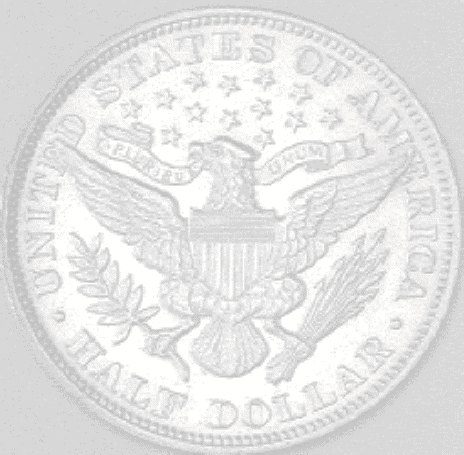
|
|
||
|
|
|
|
|
|
||

-38-
FOR BETTER OR WORSE:
In early
Roman history, only the principal on loans was collectable. Interest was
not introduced into Egypt until the 24th Dynasty (718-712 B.C.) when
Bocchoris instituted 50 percent interest on loans of money, and 55 1/5
percent on loans of grain. But as early as 2000 B.C., Babylon loaned
money at 20 percent interest and grain at 25 or 53 1/3 percent interest.
This should be no surprise as Babylon was the seat of political and
religious tyranny (Schaff- Herzog, 7:117).
In Israel, however, God had given the
blessing of Law.
“No man shall take the nether or the upper millstone to pledge: for he taketh a man's life to pledge.
" ...When thou dost lend thy brother anything, thou shalt not go into his house to fetch his pledge. Thou shalt stand abroad, and the man to whom thou dost lend shall bring out the pledge abroad unto thee. And if the man be poor, thou shalt not sleep with his pledge: in any case thou shalt de-liver him the pledge again when the sun goeth down, that he may sleep in his own raiment, and bless thee: and it shall be righteousness unto thee before the Lord thy God." --(Deuteronomy 24:6,10-15)
Again,
"If thou lend money to any of my people that is poor by thee, thou shalt not be to him as an usurer, neither shalt thou lay upon him usury. If thou at all take thy neighbor's raiment to pledge, thou shalt deliver it unto him by that the sun goeth down: for that is his covering only, it is his raiment for his skin: wherein shall he sleep? and it shall come to pass when he crieth unto me, that I will hear; for I am gracious." --(Exodus 22:25-27)
And Again,
"He that by usury and unjust gain increaseth his substance, he shall gather it for him that will pity the poor." --(Proverbs 28:8)
In Psalm 15, David asks,
"Lord, who shall abide in Thy tabernacle? who shall dwell in Thy holy hill?"
And the answer given includes,
“He that putteth not out his money to usury." --(Psalm 15:1,5)
The indictment God made against Israel might be made against America today:
" ...Thou hast taken usury and increase, and thou hast greedily gained of thy neighbrs by extortion, and hast forgotten Me, saith the Lord God." (Ezekiel 22:12)
For centuries, the
Christian community recognized the evil of extorting usury. At the Synod
of Elvira in 310 A.D., Christians were forbidden to practice it. The
Synod of Arles in 314 and the Council of Nicea in 325 prohibited pastors
from extorting usury upon threat of dismissal from the ministry, while
laymen were threatened with excommunication. Usury was labeled "avarice
and wickedness” (Schaff-Herzog, 7:117).
At the Council of Lyons in 1274, Gregory X prohibited the harboring of
usurers and of renting homes to them, and expelled them from France
within 3 months. Even their wills were invalidated (Schaff-Herzog,
7:118).
Clement V declared if any continued to affirm there is no sin in
charging usury he should be punished as a heretic (Schaff-Herzog,
7:118).
Florentine money-lenders in I5th century Italy
were extorting 52 1/2 percent interest on small loans. One evidence of
true revival occurred under the preaching of Jerome Savonarola when
bankers repented of their unjust gain and began repaying the exorbitant
interest they had charged (Smiles, 136).
In the 1400's, the Roman
Catholic church accepted the validity of a new kind of business loan. It
was called the "Contractus Trinus," and entailed a partnership in which
one person bear all risk of failure, while the other party received a
fixed rate of interest whether the business was a success or a failure.
This was the birth of the modern banking contract, and as Mr. Rushdooney
points out, "It is impossible to guarantee such returns over long
periods of time, since profits are not guaranteed in this world, and
therefore, such an insured rate of return is fraudulent” (800-01).
Luther and Melancthon inveighed against it as
"contradictory to love” (Schaff-Herzog, 7:118).
Edward VI prohibited interest on English loans, and
when Henry VIII permitted 10 percent interest, he was withstood by
Bishop John Hooper (Schaff-Herzog, 7:118).
Usury is evil because I.) it takes
advantage of people in distressing circumstances. 2.) It takes advantage
of people's carelessness. 3.) It takes advantage of people's
inexperience. To extort profit under such circumstances is incompatible
with "love thy neighbor," and "he that loveth not his brother whom he
hath seen, how can he love God whom he hath not seen?" --(I John 4:20)
"Whoso hath this world's goods, and seeth his brother have need, and shutteth up his bowels of compassion from him, how dwelleth the love of God in him? My little children, let us not love in word, neither in tongue; but in deed and in truth." --(I John 5:17,18)
______________________________________________
BIBLIOGRAPHY
Cruden, Alexander. Cruden’s Complete Concordance. Copyright 1930.Chicago: The John C. Winston
Company.
Griffin, Des. The Fourth Reich of the Rich.
Copyright 1983. South Pasadena, California: Emissary Publications.
Lockman, Vic. “The Official Counterfeiter.” Copyright 1974. Anderson,
California.
Lockman, Vic. “Who’s Calling the Shots?” Copyright 1972. Pensacola,
Florida.
Nichols, Dorothy M. "Modern Money Mechanics." Copyright 1961. Chicago:
Federal Reserve Bank of
Chicago.
Rushdoony, Rousas. The Institutes of Biblical Law.
Copyright 1973. Craig Press.
Saussy, F. Tupper. The Miracle on Mainstreet. Copyright 1980.
Sewanee, Tennessee: Spencer Judd,
Publishers.
Schaff-Herzog Encyclopedia of Religious Knowledge, The New. Edited by Samuel McCauley Jackson, Vol.
XII of 12 vols. Reprinted 1977. Grand Rapids: Baker Book House.
Smiles, Samuel. Duty. Copyright 1888. Chicago:
Belford, Clarke, and Company.
White, Horace. Money And Banking. Copyright 1895. Boston: Ginn
and Company.
Wilber, Dave. Fool's Gold Is Green. Copyright 1982. St. Louis:
Awake America.
